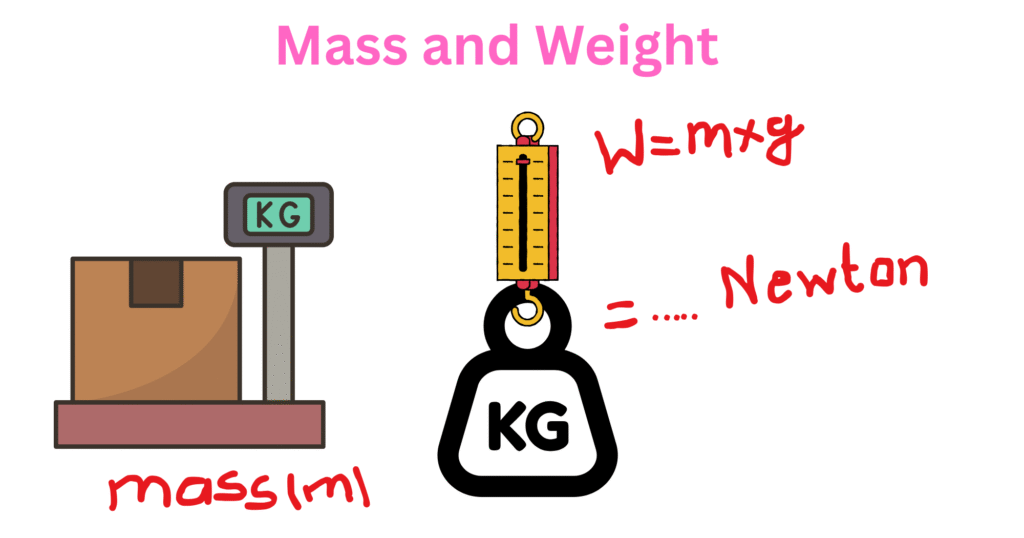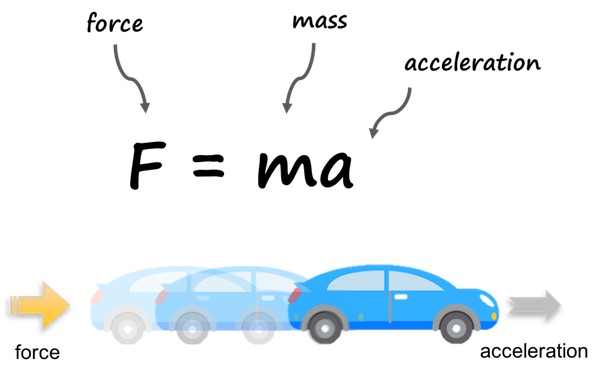IB MYP 4-5 Physics- Mass and acceleration- Study Notes - New Syllabus
IB MYP 4-5 Physics-Mass and acceleration- Study Notes
Key Concepts
- Mass and acceleration
Mass and Acceleration
Concept of Mass:

- Mass is a measure of the amount of matter in an object.
- It is a scalar quantity, meaning it has magnitude only.
- SI unit: kilogram (kg).
- Mass remains constant regardless of location (unlike weight).
Concept of Acceleration:

- Acceleration is the rate of change of velocity with respect to time.
- It is a vector quantity, meaning it has both magnitude and direction.
- SI unit: \( \text{m/s}^2 \).
- Formula:
\( a = \dfrac{\Delta v}{\Delta t} \)
Relationship Between Mass and Acceleration:

- According to Newton’s Second Law of Motion:
\( F = m \times a \)
- For a constant force, acceleration is inversely proportional to mass:
\( a \propto \dfrac{1}{m} \)
- For a given mass, acceleration is directly proportional to the applied force.
Key Notes:
- A larger mass will experience less acceleration for the same applied force.
- Smaller mass objects accelerate more under the same force.
- This relationship is crucial in vehicle design, spacecraft motion, and sports science.
Example:
A force of \( 20 \ \text{N} \) is applied to a mass of \( 4 \ \text{kg} \). Calculate the acceleration.
▶️ Answer/Explanation
From Newton’s Second Law:
\( F = m \times a \)
Rearranging for \( a \):
\( a = \dfrac{F}{m} = \dfrac{20}{4} = 5 \ \text{m/s}^2 \)
Final Answer: \( \boxed{5 \ \text{m/s}^2} \)
Example:
A \( 1500 \ \text{kg} \) car accelerates at \( 3 \ \text{m/s}^2 \). Calculate the net force acting on the car.
▶️ Answer/Explanation
From Newton’s Second Law:
\( F = m \times a = 1500 \times 3 = 4500 \ \text{N} \)
Final Answer: \( \boxed{4500 \ \text{N}} \)
[iitian_paywall seconds="30" url="https://www.iitianacademy.com/course/ib-myp-physics-practice-questions/"]
